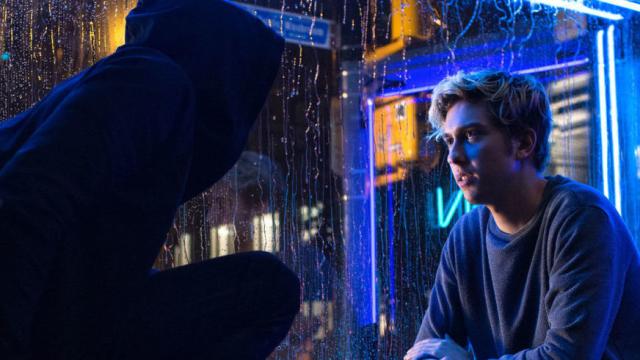Last week, Netflix’s Death Note adaptation premiered in New York City and the screening gave its creators a chance to respond to the widespread criticism of the film’s whitewashing of Japanese characters and context. Their responses aren’t exactly encouraging, but at least they’re talking?
Image Credit: Netflix
When news of Netflix’s Death Note adaptation surfaced earlier this year, it met a lot of hostility one simple reason: the film, based on the Japanese manga written by Tsugumi Ohba and illustrated by Takeshi Obata, doesn’t feature Japanese actors. The villainous protagonist, Light Yagami, is Light Turner and is being played by the incredibly Caucasian Nat Wolff, with the entire story now rewritten to take place in Seattle.
The adaptation’s detractors say the film traffics in the longstanding practice of whitewashing, where characters and stories from non-white backgrounds are rewritten for an American context and cast with white actors in roles that were initially played by people of colour.
Talking to Vulture at last night’s premiere, director Adam Wingard said the controversy caught him by surprise. “It’s one of those things where it’s a good conversation to be having, and it wasn’t one we were really expecting,” he said. “It wasn’t until Ghost in the Shell cracked it open [that] it became a conversation. But by then, we had already cast all of that stuff.”
“I think we got the right actors for the parts that were written,” said Roy Lee, one of the film’s producers (and, it should be noted, an Asian American himself). “We didn’t look at race as a factor. We just did the version that was set in the US. There are remakes of US movies like Sideways in Japan, abut there was never a thought for them to bring in American actors to play the [characters] in the Japanese remake.”
There’s a lot to unpack here. The conversation around whitewashing in American media is sometimes messy, but it’s an essential one to have. White voices and white stories are still disproportionately represented in our culture. And stories are cultural power.
Casting Death Note with white actors, erasing Japanese names, situates the power of telling in the hands of mainstream American culture. It threatens to erase the cultural particularities of the original work, and it sends the message that the only way to adapt something to an American audience is to make it whiter.
That’s why I find Wingard and Lee’s responses so frustrating. Neglecting to think of race as a factor seems irresponsible when telling a story that’s borrowed from another culture. And Lee’s argument about Japanese films ignores the context of race in America in general and Hollywood in particular, where Asian American actors still struggle to find roles. When race isn’t considered as a legitimate factor, my fear is that egalitarianism doesn’t win. Erasure does.
And I understand this isn’t fun or simple to talk about, and I’m certainly not an authority on the subject. I’m just a white girl, after all, and there’s certainly a debate to be had about the best practices and messy practicalities of trying to adapt work from cultures different from one’s own. I have opinions, not answers. But those questions can’t be just afterthoughts. They have to be central, and they have to start being asked before pen ever hits paper.
[Vulture]
